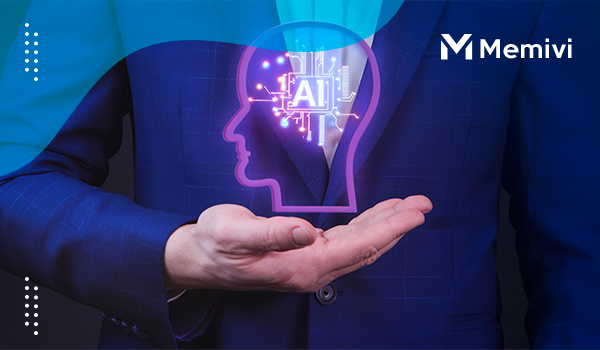
In the rapidly evolving landscape of technology, AI-based entrepreneurship stands out as a game-changer. This innovative approach is reshaping the way businesses interact with consumers, profoundly influencing consumer consciousness. By harnessing the power of artificial intelligence, entrepreneurs are not only optimizing operations but also transforming consumer experiences. The rise of AI in business, coupled with its impact on behavior, presents both opportunities and challenges, paving the way for future trends that promise to revolutionize various industries. Join us as we explore how AI-driven strategies are set to redefine consumer expectations and business paradigms.
The Rise of AI in Business
Artificial intelligence is transforming how businesses operate, offering numerous advantages, from enhanced efficiency to improved decision-making. AI-driven solutions are now integral in optimizing business processes, resulting in significant cost savings and increased productivity. By automating routine tasks, companies can allocate resources to areas requiring human intelligence, such as strategic planning and customer relations.
The adoption of AI in business has opened new avenues for entrepreneurs, giving rise to innovative business models. AI-based entrepreneurship is about leveraging these cutting-edge technologies to create competitive advantages, develop niche markets, and drive growth. These tools enable startups to analyze vast amounts of data quickly, providing insights that were previously unattainable. By understanding patterns and predicting trends, businesses can proactively respond to consumer demands.
Another profound impact of AI in the business landscape is the personalized customer experience. Through data analytics and machine learning, companies can tailor their services and products to individual preferences, leading to higher customer satisfaction and loyalty. This customization fosters a stronger connection between brands and consumers, enhancing brand reputation and trust.
The Role of Machine Learning and Automation
Machine learning algorithms are at the forefront of AI applications in business. They allow systems to learn from data and improve over time, which is particularly valuable for improving operational processes and customer interactions. Automation, powered by AI, is efficient in performing repetitive tasks without errors, freeing up human capital for more strategic initiatives. Businesses that effectively implement AI technologies can significantly increase their competitive edge in the market.
How AI Influences Consumer Behavior

Artificial Intelligence (AI) has become a game-changer in understanding consumer behavior. By analyzing vast amounts of data, AI-driven insights reveal patterns and preferences that were previously unnoticed. Businesses can now anticipate consumer needs, offering personalized recommendations that enhance the shopping experience. This ability to predict and personalize strengthens the emotional connection between brands and consumers.
Data analysis through AI allows businesses to react and adapt swiftly to changing consumer demands. Real-time feedback and AI-powered analytics keep companies ahead of trends, ensuring they remain competitive by meeting consumer desires before their competitors.
Furthermore, AI influences decision-making by providing consumers with precise information. AI-based systems not only suggest products but also educate consumers on product benefits, creating more informed purchasing decisions. In this way, AI builds trust and a sense of reliability for tech-savvy consumers who seek transparent interactions with brands.
AI also enhances customer service experience. With AI chatbots and virtual assistants, brands offer instant support, helping consumers to resolve issues efficiently. These AI solutions are designed to understand and learn from interactions, continually improving their service quality and ensuring customer satisfaction.
As AI continues to evolve, its influence on consumer behavior will only grow stronger. By making sense of consumer data and optimizing engagement strategies, AI empowers businesses to remain significantly relevant in an ever-competitive market.
Challenges of AI-based Entrepreneurship
AI-based entrepreneurship presents a variety of challenges that need to be carefully navigated. One of the primary challenges is the rapid pace of technological change. Entrepreneurs must continuously adapt and update their systems to stay competitive. This can be resource-intensive and requires constant learning and development.
Data Privacy Concerns
Managing data is another critical aspect. As businesses collect vast amounts of information, ensuring data privacy and security becomes paramount. Failure to protect consumer data can lead to significant trust issues and legal complications.
Integration and Implementation
Another challenge entrepreneurs face is the integration of AI systems into existing business processes. It requires careful planning and a strategic approach to achieve seamless implementation. Training employees to effectively work with AI technologies is an essential step that cannot be overlooked. Moreover, there is the challenge of ethics and bias in AI decision-making. Ensuring that AI-driven choices are ethical and free of bias is crucial for maintaining trust and credibility with consumers. Addressing these challenges with diligence and foresight can enable entrepreneurs to harness the full potential of AI, ultimately driving positive change in consumer consciousness.
Future Trends in AI and Consumer Consciousness
Future Trends in AI are shaping how businesses connect with and understand their customers. As AI continues to advance, its integration into everyday technology is becoming seamless. Imagine AI-driven applications that predict consumer choices before they even happen. These adaptive technologies analyze data in real time, providing insights on trending product preferences and emerging consumer demands.
Personalization is at the forefront of future AI trends. Machine learning algorithms are evolving to create tailored experiences for users, enhancing customer satisfaction by delivering unique recommendations. These technologies consider everything from purchase history to online behavior.
Transparency and Ethical AI
As consumer consciousness grows, there’s a significant push for transparency in how AI systems gather and use data. Future trends indicate a move towards ethical AI, which prioritizes user privacy and consent. Companies are expected to adopt open algorithms that allow consumers to understand how decisions are made.
Moreover, the integration of AI in business will likely lead to automated customer service solutions that feel increasingly human. These virtual assistants will manage simple queries and complex interactions, tailoring responses to individual needs.
The fusion of AI and consumer consciousness not only addresses immediate demands but also forecasts shifts in consumer values. This dynamic allows businesses to innovate strategically, ensuring that they remain relevant in the marketplace of tomorrow. With AI, businesses can anticipate changes and adapt swiftly, giving them a competitive edge.



 Valentine’s Day: The 23+ best Valentine’s Day gifts in 2025 <p class='sec-title' style='line-height: normal; font-weight: normal;font-size: 16px !important; text-align: left;margin-top: 8px;margin-bottom: 0px !important;'> Valentine's Day is approaching, and it's time to find that perfect gift to express your love in 2025. </p>
Valentine’s Day: The 23+ best Valentine’s Day gifts in 2025 <p class='sec-title' style='line-height: normal; font-weight: normal;font-size: 16px !important; text-align: left;margin-top: 8px;margin-bottom: 0px !important;'> Valentine's Day is approaching, and it's time to find that perfect gift to express your love in 2025. </p>  AIibaba AI Qwen 2.5-Max: boost your advertising revenue <p class='sec-title' style='line-height: normal; font-weight: normal;font-size: 16px !important; text-align: left;margin-top: 8px;margin-bottom: 0px !important;'> The digital advertising landscape is transforming rapidly, and AIibaba AI Qwen 2.5-Max stands at the forefront of this revolution. </p>
AIibaba AI Qwen 2.5-Max: boost your advertising revenue <p class='sec-title' style='line-height: normal; font-weight: normal;font-size: 16px !important; text-align: left;margin-top: 8px;margin-bottom: 0px !important;'> The digital advertising landscape is transforming rapidly, and AIibaba AI Qwen 2.5-Max stands at the forefront of this revolution. </p>  Dollar leaps as Donald Trumps tariffs shake markets <p class='sec-title' style='line-height: normal; font-weight: normal;font-size: 16px !important; text-align: left;margin-top: 8px;margin-bottom: 0px !important;'> The Dollar leaps significantly as Donald Trump's tariff policies send ripples through the global markets. </p>
Dollar leaps as Donald Trumps tariffs shake markets <p class='sec-title' style='line-height: normal; font-weight: normal;font-size: 16px !important; text-align: left;margin-top: 8px;margin-bottom: 0px !important;'> The Dollar leaps significantly as Donald Trump's tariff policies send ripples through the global markets. </p>